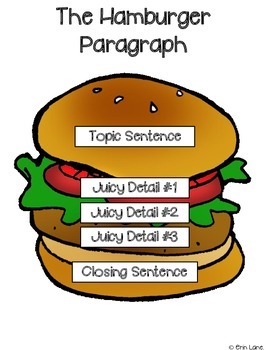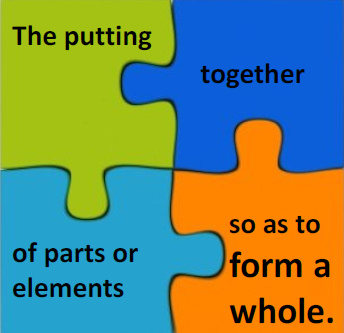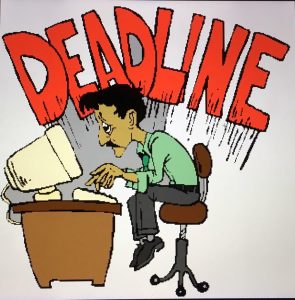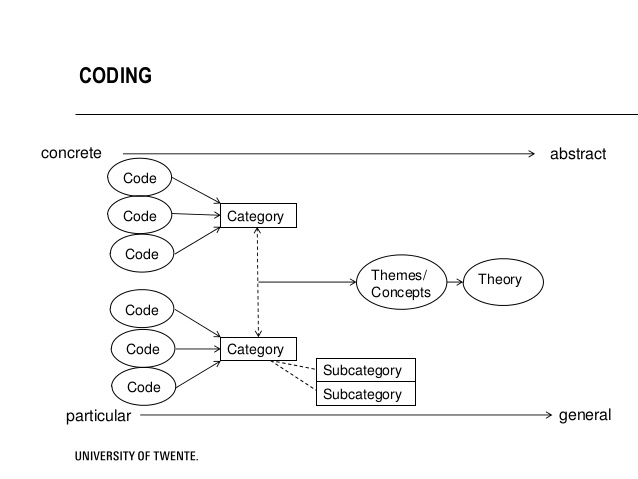We’re really excited about launching our new video tutorial series, designed to walk you through the key decisions and processes of dissertation and thesis writing. Think of it as 24/7 access to the collective wisdom of our dissertation consultants (for those late-night moments when you find yourself thinking, “Wait–what’s triangulation, again?”).
Let’s face it–as a master’s or doctoral candidate, you’re leading a busy life. If you’re like the vast majority of clients who reach out for dissertation help, you’re not only writing your dissertation, but (somehow!) balancing this work alongside a full-time job and family commitments. We recognize that your time is valuable (and limited!) and so we hope that this new series will be useful to you throughout your graduate studies–whether you’re finalizing your topic, preparing to begin your qualitative or statistical analysis, or completing your final APA editing and reference check to make sure your work is ready for final approval.
That said, we know we’re not the only resource out there for researchers seeking dissertation assistance–and while we’re thrilled to share our new videos with you, we thought we’d point out some favorites of ours that provide some especially helpful advice when it comes to your research and the dissertation editing process.
Things about a PhD nobody told you about
In this TedX talk, Dr. Laura Valadez-Martinez discusses the doubts and questions that come up during the doctoral research process. Especially for candidates in the early to middle stages of their dissertation process, her refrain “But nobody told me about…” might ring especially true!
The initial days of the research journey are crucial, but can easily feel overwhelming. Many of our early process clients come to us for dissertation consulting with the same questions: Is the topic more appropriate for quantitative or qualitative research and analysis? Is now the time to hire a dissertation editor?
Valadez-Martinez’s suggestions are very insightful and supportive, and can definitely help you to reshape your thinking so that you acknowledge and celebrate your hard work. We find especially helpful her tip regarding the importance of leavings things out–a crucial part of developing a coherent draft, particularly for the literature review, but one that many of our clients find painful! It can be hard during the dissertation editing process to leave out research you find especially interesting (or, let’s be honest, you just want credit for reading!), but you never know how what’s “left out” might contribute to your work later–either as a reference to answer a question during your dissertation defense, or perhaps in shaping your future research post-Ph.D.!
Valadez-Martinez also stresses the importance of “tiny progress.” It can be easy to get stuck in one place–whether that’s because of writer’s block, or because you’re waiting for materials or feedback. Dr. Valadez-Martinez points out that (given the length and depth of dissertation research and editing) you can still make the most of your time by moving onto a different section If you’re waiting for feedback on the literature review, for example, you might start developing the initial sections of your methodology chapter, justifying why a quantitative or qualitative research approach is best for your study. Or you can revisit approved content of your work and get some of that detailed APA editing out of the way–so you don’t have 100 pages or more of dissertation editing and formatting waiting for you at the end of the writing process!
Our other favorite suggestion from this video is to keep a research diary, tracking decisions you make and why you make them. This can be very helpful when you’re preparing for your qualitative or statistical analysis (so you can track each step of your data collection and analysis process, critical information for your results chapter) or when you’re grappling with reviewer feedback–you’ll never have to ask yourself “How did I come up with this name for my second theme?”
Related: If you’re early in your dissertation or thesis writing process, check out our video on topic development to help you get started!
Writing the thesis
Shout out to our New Zealand dissertation consulting clients with this video! This is a longer watch, but it’s definitely a helpful overview regardless of where you live (or study), and equally relevant whether you call your final written product a thesis or a dissertation (and whether you’re writing on a master’s or doctoral level).
We especially recommend this video for Dr. Lilia Sevillano’s discussion of style and structure, with specific examples on the sentence, paragraph, and chapter levels. These may be especially helpful if you’re less comfortable writing for an academic audience. Even seasoned academic writers should make a note to listen closely when she discusses the TEE method for paragraph structure–it’s great shorthand to help you review your paragraphs and make sure they’re clear and to the point.
If you’re short on time but would still like to get the most out of this video, be sure to check out the checklist for revisions and editing (about 12 minutes into the video). This list offers a great mix of macro-and micro-level questions to consider both when you finish and begin to review a chapter draft, or when you’re doing a final review before submitting finished work to your chair or dissertation coach for feedback.
Keep watching at this point to check out Dr. Sevillano’s more in-depth guide questions (starting around 14 minutes in). While these questions may show up later in the video, our dissertation consultants find them very helpful as prompts for your own thinking at the start of the dissertation or thesis writing process.
Related: If you’re looking for pointers on well-supported academic writing, make sure you start from the ground up! Check out our Problem Statement video.
Debunking myths in academic writing
Yes, we know–this video by “Dr. Ed” is technically for undergraduates! But when you feel stuck or lost in the middle of writing (literature review, anyone?) it can be helpful to go back to the basics. This is also absolutely the kind of legwork that saves you time when you edit your dissertation down the line!
Often when we feel stuck during the drafting process, it’s actually the “rules” that we’ve been taught about academic writing that are holding us back. Dr. Ed outlines some myths about “good” academic writing that, if followed too closely, can hinder you from performing appropriately in-depth critical analysis of existing scholarship–not to mention the unique findings of your original research (this goes for quantitative and qualitative research alike–and especially for mixed methods studies!).
While, hopefully, you’ve moved past a 5-paragraph structure at this stage in your academic journey, it can be easy to follow that “formula” by just expanding the length in your mind. However, particularly in the literature review and discussion sections, that approach to dissertation or thesis writing increases the likelihood that you’ll rely on summary, rather than identifying key themes via synthesis and analysis of your sources and findings. This short and sweet video highlights the complexity needed for in-depth analysis and discussion and why a simplified approach is ultimately too constraining for graduate-level research.
Related: Struggling with your literature review and discussion chapters? Then you definitely want to check out our in-depth look at synthesis and critical analysis in our literature review video!
The perfect proposal
Here’s a video you should absolutely set aside some time to watch! It’s another longer one, but there are some great tips and exercises to help you get your dissertation proposal approved. In fact, we actually recommend it primarily to our dissertation consulting clients completing a prospectus, concept paper, or initial proposal document–the earlier you start thinking about committee approval and feedback, the better.
In this video, Dr. Candace Hastings takes you through the initial development of your dissertation topic and approach, and offers some serious pro tips along the way. One of our favorite suggestions is to look up and review dissertations in your field and even from your specific university as you’re getting started. If your university uploads approved dissertations to ProQuest, you can even narrow down your search to studies approved by your chair! (This also helps you to become familiar with formatting standards and expectations, so you’re fully prepared when the time comes for dissertation editing!)
Dr. Hastings also offers some great tips when it comes to researching current and seminal scholarship to support your topic. First, she breaks down how to approach your initial literature search (a question we get a lot from researchers who contact us for dissertation help) in terms of finding the “big players” in your field first. Then she provides a very pragmatic discussion of the importance of selecting a theoretical or conceptual framework because it really reflects your own thinking and goals for the study. This not only helps you build a stronger study, but also ensures that you feel comfortable discussing these theories with your chair!
You’ve probably heard of the “elevator pitch” before, but (we’ll confess!) our dissertation consultants definitely geeked out about Dr. Hastings’s suggestion to take this approach to describing your proposed topic. If you can clearly articulate the goals of your study in 1-2 sentences, that demonstrates to your chair (not to mention your peers, family, and friends) that you are ready to dive into your research!
Also of note: While many of our clients (especially those attending the major online universities) have clear templates for pre-dissertation materials or for their initial dissertation chapters, Dr. Hastings offers suggestions for those candidates who don’t. Even if you have a prospectus or concept paper template to guide your initial dissertation or thesis writing, though, you’ll absolutely find this part of the video useful. She really explains the importance of pre-research drafting to clarify how you will complete your study–which may provide some much-needed motivation as you finish your draft!
Related: Prepping your prospectus, concept paper, or dissertation proposal for approval? Watch our video on alignment to make sure you present a clear and compelling argument for your proposed dissertation or thesis research!
Literature Reviews: An overview for graduate students
This video from North Carolina State University Libraries breaks down both the importance of and process for developing a strong, well-researched literature review. This may be information you’ve heard before from your chair or dissertation coach, but unlike a simple rundown of the necessary steps to draft a literature review, this overview particularly emphasizes its role in helping you demonstrate your knowledge of the topic–something helpful to keep in mind so you don’t slip into summary mode trying to fit in all those articles!
The literature review is often the most challenging part of the dissertation or thesis writing journey, and we hear from candidates at this stage seeking dissertation consulting or dissertation assistance more than almost any other step in the process. Dr. Classen’s description of the literature review as a “chain story” is a great image to help you think about your own research as supplying a missing link in existing research in the field.
Building on the idea of the chain story, the video’s visual mapping of how to develop a thorough literature review (including how to think about your own potential contribution) might really bring it all together for you visual learners out there. As with some of the other videos mentioned here, synthesis and critical analysis are emphasized as tools to help you draft a discussion that is independent from (even while it builds on) current scholarship and discussion within the literature.
We especially appreciate the thorough breakdown of what sources can and should be included in a literature review–from peer-reviewed articles, to academic monographs, to published dissertations and government reports. (This is something we’re often asked about by candidates seeking dissertation or thesis help for the literature review–and if you’re getting started on your literature search, don’t miss our two-part discussion of appropriate scholarly sources (link to 2 blog posts).)
Related: Our literature review video offers a truly in-depth look at how to optimally craft this chapter for dissertation research–whether you’re just starting or in final revisions, you’ll definitely want to check out our tips and tricks!
Top 3 primary research methods
Moving onto methodology–and qualitative methodology, specifically–we wanted to point you towards this straightforward but thorough overview of the three most common data collection options for qualitative research. (If you’re thinking about a case study, this video is a must-see!)
This is another short and very focused video to help you understand the goals of (and differences between) questionnaires, interviews, and focus groups when conducting qualitative research and analysis. While keeping things simple, the video breaks down what each form of data collection entails. Perhaps of particular interest for our dissertation consulting clients on a deadline to finish their studies, online questionnaires are discussed and recommended in terms of their time-saving advantages, as it’s much easier to recruit and collect data from participants filling out a questionnaire on the Internet.
For researchers considering interviews–the ideal format for exploring more complex questions–you’ll enjoy the jargon-free discussion of the differences between structured, semi-structured, and unstructured interviews. (Which might help you to finalize your own choice!) It’s important to strike the right balance here, so that your participants feel comfortable enough to share key details you’ll need for a robust qualitative analysis, while making sure they remain on topic throughout your interview.
Finally, those planning to include one or more focus groups in their qualitative research should pay special attention to this final section of the video, which offers helpful tips regarding selecting the appropriate setting and key considerations when preparing for your role as moderator.
Related: If you’re planning a qualitative or mixed methods study, don’t miss our qualitative research and mixed methods videos! (Quantitative researchers, we haven’t forgotten about you–click over to our in-depth video on quantitative methodology and statistical analysis for more information on these topics.)
Qualitative analysis of interview data
Dr. Kent Lofgren, in this video, provides a thorough discussion of each major step of the qualitative analysis process. Whether you’ve selected, phenomenology, or a case study for your qualitative research design, you’ll probably find Logfren’s discussion a useful starting point once you’ve collected your data and are preparing to begin analysis.
We find this video particularly user-friendly as it’s not tied to one particular analysis protocol (although the process described is most similar to thematic analysis). Because it’s a more general discussion, you’ll find Lofgren’s overview is quite free of jargon and so easy to follow for researchers completing qualitative research and analysis for the first time.
Rather than diving right into the analysis process itself, this video also highlights the importance of the full context of the study for a productive analysis, discussing how qualitative analysis relates directly back to what’s outlined (and approved) in the methodology section.
What will probably be the most helpful for researchers seeking dissertation assistance for qualitative analysis, though, is the step-by-step discussion of how to review, code, and categorize data–and although the video uses transcribed interviews as its example, the steps are equally relevant to observations, journal entries, and focus group discussions.
Lofgren also outlines the options available for each step–for example, once categories (themes) have been developed, you can further analyze the data to determine a hierarchy amongst the themes or if, by contrast, one or two themes are dominant among your findings. He also clearly outlines possible avenues to then interpret your results (which can sometimes feel quite daunting with all that data crowding your brain!).
Our qualitative research experts on staff are big fans of this video because Lofgren really takes the time to demonstrate the importance of the researcher in completing qualitative analysis. Whether you use NVivo or another software, it’s important to remember that this software is simply a tool to help you organize and manage your data during the analysis process–it won’t do the analysis for you! (Keep in mind, too, that if you’re new to NVivo, ATLAS.ti, or MAXQDA, and are looking for dissertation help to complete this next step in your research, we can absolutely assist you with your analysis!)
Related: About to get started on your qualitative analysis in NVivo? Before you begin, make sure to watch our step-by-step video on NVivo software so that you’re able to take full advantage of its features and complete your analysis sooner!
References
- Hastings, C. (2016, September 27). The perfect proposal. Retrieved from https://www.youtube.com/watch?v=bSCKdmCfzHo&list=PLO4TexT53z4pLRA3CC7hwq5JLhExHq_Yy&index=3
- Ivory Research. (2013, August 12). Dissertation tutorial: Top 3 primary research methods. Retrieved from https://www.youtube.com/watch?v=_lR7oCjutZE
- James, G. (2017, April 6). 3 ways to perfect your elevator pitch. The Playbook. Retrieved from https://www.inc.com/geoffrey-james/3-steps-perfect-elevator-pitch.html
- Lofgren, K. (2013, May 19). Qualitative analysis of interview data: A step-by-step guide. Retrieved from https://www.youtube.com/watch?v=DRL4PF2u9XA
- North Carolina State University Libraries. (2009, July 30). Literature reviews: An overview for graduate students. Retrieved from https://www.youtube.com/watch?v=t2d7y_r65HU
- Pragmatist Academy. (2017, May 1). Debunking myths in academic writing (Dreadful Deadlines episode 1). Retrieved from https://www.youtube.com/watch?v=Wny3bZPCIkw
- Sevillano, L. (2010, March 24). Writing the thesis [Massey University]. Retrieved from https://www.youtube.com/watch?v=vHHtfO-Bu1M
- TED Conferences, LLC. (2018). TEDx program. Retrieved from https://www.ted.com/about/programs-initiatives/tedx-program
- Valadez-Martinez, L. (2016, December 13). Things about a PhD nobody told you about [TEDx Talks]. Retrieved from https://www.youtube.com/watch?v=CAKsQf77nHU&index=9&list=PLzHWhT9AbhfUFryhnvDaGbM6mJvSUXMJH








